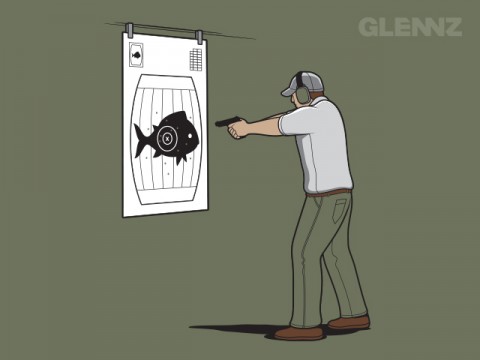Earlier this week, Michael Roth, the president of Wesleyan University, published a good op-ed on the danger of focusing too hard on the “critical” part of critical thinking.
The combination of resistance to influence and deflection of responsibility by confessing to one’s advantages is a sure sign of one’s ability to negotiate the politics of learning on campus. But this ability will not take you very far beyond the university. Taking things apart, or taking people down, can provide the satisfactions of cynicism. But this is thin gruel.
The skill at unmasking error, or simple intellectual one-upmanship, is not totally without value, but we should be wary of creating a class of self-satisfied debunkers — or, to use a currently fashionable word on campus, people who like to “trouble” ideas. In overdeveloping the capacity to show how texts, institutions or people fail to accomplish what they set out to do, we may be depriving students of the chance to learn as much as possible from what they study.
In campus cultures where being smart means being a critical unmasker, students may become too good at showing how things can’t possibly make sense. They may close themselves off from their potential to find or create meaning and direction from the books, music and experiments they encounter in the classroom.
I do remember when I (I mean, a friend) hadn’t had enough time to do all the reading for a political science class, the fastest way to be “prepared” on the walk to class was to just read the methodology. It was a lock that something in it would be questionable or at least could plausibly be done better, and voilà I… I mean my friends had their comment prepared to deliver in section. “Given that the sample was entirely of college students, I’m not sure how far we should generalize this result to political and moral intuitions of the general population…”
The critique wasn’t necessarily wrong, but, being lazily assembled, it wasn’t constructive. All models are flawed, so it doesn’t require a great deal of intellectual firepower to find some deviation from the Platonic study on this topic. If I were going to raise that kind of comment, it would be better to follow it up with a little thought on how much we could still learn from the study, and whether it was enough evidence to prompt any policy or personal changes.
In blogging generally, I look skeptically at debunkings, fiskings, and other critically focused pieces. I’m certain that there are wrong things on the internet, so, if a writer is going to turn over their day to answering them, I’m hoping it’s because the bad idea stems from a pervasive cognitive bias, and is a good reminder to root out its equivalent manifestations in our own lives or because the writer noticed the bug and has an engaging fix to try out or because the bad idea is common enough to be dangerous (and the writer is either good at pitching its adherents on conversion or rallying the troops to take action). But just reminding us wrong ideas exist isn’t particularly useful.
Going on a flaw scavenger hunt can be lazy, but, as Elizabeth Stoker argues in “On Being Vulnerable,” it can also be cowardly, or, at the very least, unsporting. She starts with the example of her own debate experience and uses it to illuminate similar patterns of critique-as-defense outside the academic sphere:
Back when I did debate, both the affirmative and negative sides were expected to show up to the debate round with cases. But sometimes the negative side wouldn’t prepare a case, and would instead “go straight ref” — that is, ‘straight refutation.’ In that situation the negative side would have no counter-proposals or alternative reasoning; they would just refute everything the affirmative said with no alternative. You could technically win this way, but it was hard with a lot of judges, because they thought: hey, at least the affirmative is putting something out there.
The cynical thrill of deconstruction is straight refutation. You’re not putting something out there, you’re not offering an alternative, and you’re not rendering yourself open to any kind of attack. In may ways straight refutation is an invulnerable position: because you’re not proposing anything, your commitments are never available to be damaged or questioned, because they just don’t exist.
My college debate experience was reasonably good about all this. My friends and I had a bit of a running joke, “Remember, it’s very rude to make freshmen into nihilists,” by which we meant that, although of course it was fine to cross-examine recruits on and off the floor, you should avoid leaving them in the kind of position where they started denying they believed anything so that they’d be free from suspicion of contradiction. The upperclassmen tended to develop a (mostly) healthy respect for hypocrisy and paradox, since it meant you’d asserted enough to be useful, even if your ideas wanted refinement.
If you’d really managed to come up with a wholly coherent philosophy before graduation, we all got a little suspicious that your theories had undergone a Procrustian adjustment. It seemed as glaring (and as suspicious) a coincidence as working out an ethical theory in which you never turned out to be a hypocrite–preaching virtues that exceeded what you practiced–because you had limited your moral injunctions to the scope of the currently achievable.
Once your system was impregnable, you’re safe from outside assault, but have left yourself little room to grow. As G.K. Chesteron puts it in Orthodoxy, “Perhaps the nearest we can get to expressing it is to say this: that his mind moves in a perfect but narrow circle. A small circle is quite as infinite as a large circle; but, though it is quite as infinite, it is not so large… There is such a thing as a narrow universality; there is such a thing as a small and cramped eternity.”













